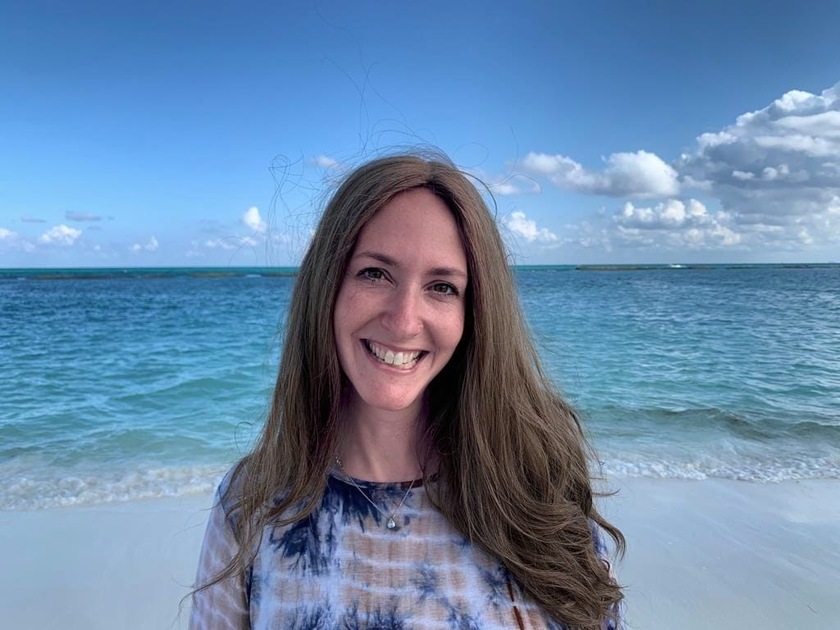
Choosing to Remain in an Imperfect Marriage
By: Elisheva Liss, LMFT
Leah closes her eyes and pauses for a moment, then swallows. I’ve come to recognize this subtlety as a cue that something deeply personal and profound will follow. I cross my legs, trying to be patient and open, and refocus on her face.
I didn’t record her exact words, and I wish I had, because she was honest, wise, clear, and calm, but below is my paraphrase of what came next:
“I think the best way to explain where I’m at in my marriage is like this: If I could go back in time, and make the choice again, knowing what I know now, I’m pretty sure I would walk away. I wouldn’t marry him again. I know that and it’s painful. Especially given how much I love my kids. But somehow… that doesn’t automatically mean that now I would end it. We have children, we have a life, we have friends, we have a home, jobs, and even a future. If he were abusive, or if we we hated each other, it would be different. But it’s not like that; we’re ok. We get along. We have a rhythm and a routine that mostly works. We have good times, and we can support each other. We’ve learned to connect physically. We work on ourselves, on our relationship, on our parenting. We’re decent partners. We’re not miserable. I just need to make peace with the disappointment. I need to be able to hold my clarity that I wish I hadn’t married him in one hand, and my commitment to stay with him and try our best in the other hand, and be mature enough to feel both of those things, and not have them be at war with each other. I need to make peace with the mismatched feelings, the ambivalence, the imperfection, the acceptance, and the hope tempered by realism.”
Leah is an intelligent, healthy person. She has been married for over 10 years. She and David met when they were young, and married quickly, as per their community norm. She is someone who enjoys deep friendships and loves her children whole-heartedly. She can generally have pleasant enough conversation with David about their shared areas of interest- the kids, work, the house, finances. Sometimes they even try to take it a little deeper- feelings, hopes, and dreams, but Leah just finds it often comes out a bit forced and dry.
When talking about love, Leah turns wistful. “Love? Does that really factor in at this point? I care about him. But it’s not love, not most of the time, anyway. Not the way I love my kids. It’s not what I imagined, or want for my children. But it’s not bad, and there are nice moments. It’s hard to describe. I’m sure everyone has ups and downs. We don’t have very steep downs, but the ups aren’t too high either.”
David is more content in the marriage than Leah. He is a decent, honest man of simple needs, and not as reflective. Leah never felt very excited by the relationship, and she kept assuming the feelings “would come” but they never really did. As a couple, they’ve tried different attempts at infusing the marriage with fresh energy, and connecting in different ways, but as Leah notes: “This is just who he is and who I am. It’s not bad, it’s not great, it just ‘is’.”
It’s interesting, that while this type of choice is so common, I’ve seen very little literature addressing this specific phenomenon. A widespread modern approach, even assumption, when it comes to marital problems is to either “fix” them or give up and get out. Yet while this seems to be the way it’s addressed pop culture, TV or books, the reality that I witness frequently is a third alternative: simply choosing to stay, anticlimactically.
I’m not referring to quiet desperation or discouragement. I’m not talking about denial or delusions. I’m talking about a reasonably healthy, intelligent, thought-out decision weighing the pros and cons of each outcome scenario, and choosing to stay committed to something much less than ideal.
Among these couples, there is a common theme: many simply feel: “I didn’t get the spouse I ordered.” Or: "I got what I thought I wanted, but the feelings just aren't there."
The areas of conflict could be profound and ideological, such as differences in values, or lack of chemistry. It could be a feeling of “we’ve grown apart” and the feelings have changed. Or they could be more trivial and mundane, such as different recreational preferences, or no common interests, but either way, this type of dissatisfaction means someone feels he or she got the short straw.
[There are some serious marital problems that are generally harmful and not sustainable for the long haul, such as abuse, severe or untreated addiction, or chronic, explosive fighting. Sometimes these serious issues are treatable, and sometimes they aren’t, depending on the couple. And sometimes, even the more “mild problems” need to end the marriage, because one party no longer wants to be there, and of course, that’s always their choice, and needs to be respected. ]
Naturally, the first step upon realizing the problem is to try and correct things. A healthy couple will endeavor to improve or reinvent the relationships in all the primary areas: intellectual, practical, physical, material, romantic, spiritual, emotional. They may attend lectures, seminars, therapy, read books, travel, pray, have more/ different sex- all excellent efforts at relational growth. If they are insightful, well-meaning people, and they are doing these things well, they might see some strengthening and improvement of their union; they may even find the loving connection they seek.
But there are some traits, tendencies, faults, and flaws that for one reason or another, are just not going anywhere. Sometimes as a result of marital work and improvement, they become less significant. But in other cases, it’s a matter of acceptance. It’s being able to say: “I wish my spouse were more_____, or less _____, or that I could just feel more in love. I’m sad about what’s missing from us. But we are ok. I will try to enjoy what we have, and work on us to be even better. But this is good enough for now.”
This would make a lousy ending to a romance novel or movie. But in real life, couples like Leah and David make this choice frequently and often successfully. And paradoxically, when they do, often the relationship improves. Not magically, but meaningfully- commitment begets connection. And, as we’re often told: “Love is a verb”- not only the direct result of lust or passion. Lust and passion are fabulous, intoxicating visitors, but they rarely move in for good, and almost never guarantee relational longevity. Their nerdy classmates, on the other hand: compassion, empathy, generosity, kindness, dependability- well, they make less noise, but become CEOs of stability.
I think emotional maturity involves the capacity to accept messy, hybrid, fluctuating emotions. Sometimes I suggest to couples who are struggling, that the serenity prayer can be applied to marriage: “G-d grant us the serenity to accept what we can’t change, the courage to change what we can, and the wisdom to know the difference.” The serenity to accept what is not changing at this moment, in our circumstances, ourselves, our spouses, and our relationships. The courage to challenge and stretch the potentially variable factors in those areas, and the wisdom of discernment, so that we don’t waste time and efforts on the wrong goals. Certainly, keep growing, keep striving, keep praying, keep working, and keep hoping. And if you ultimately decide that you need to walk away, find the courage and support to do so. But in the meantime, or alternatively, there’s absolutely no shame, and nothing wrong with saying: “it’s not ideal, but it’s ok for me, and right now, I’ll keep what we’ve got.”
Check out my new course!
A Religious Families Guide to Healthy Holy Sex Education: Sacred Not Secret
Elisheva Liss, LMFT is a psychotherapist in private practice. Her book, Find Your Horizon of Healthy Thinking, is available on Amazon.com. She can be reached for sessions or speaking engagements at speaktosomeone@gmail.com More of her content can be found at ElishevaLiss.com
 Previous
Previous

